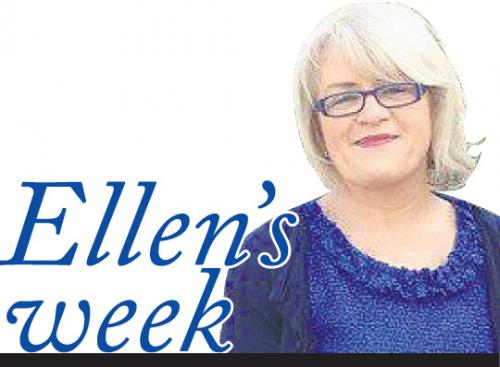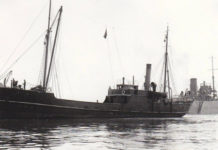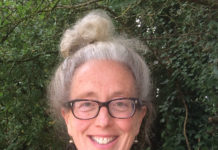
‘St Brigid was born at Faughart, Co Louth, about the year 463. As a young girl she was to show many of the traits that were in later life to make her famous.’ What?
That bit of information about St Brigid comes to my mind at random times. It’s embedded deep in my brain, burned like a cattle brand from endless repetition that was the rote learning of my school days.
I’ve loads of other bits in there too that I recall at arbitrary times. I can remember whole tracts of prose we learned by heart in secondary school, recite big chunks of poems at will. Best of all, for someone who was never good at maths, I can still remember all my tables, adding, subtracting and division.
That was thanks to a nun in primary school who beat out the rhythm of our sing-song recitation with a long cane that doubled as an instrument of punishment for anyone stalling or even showing any hesitation.
Education Minister Ruairi Quinn was talking last week about doing away with rote learning and moving more towards reasoned thinking. I can just imagine the horror such a notion would be greeted with by the nuns who taught me.
We were always learning something off by heart in national school and paraded around to Feiseanna, choral festivals and poetry competitions to perform in English and Irish in our strictly regimented way. There was more of it in the Girl Guides; pledges to learn, songs to sing, poems to recite. My young brain soaked it all up like a giant sponge and now regurgitates it at different times in middle age.
Sometimes something sparks a memory, like the time recently in a supermarket when I heard a loud woman guffawing at something her daughter had said. Hers was, somewhere from deep in my cerebrum came the thought, unbidden, ‘The loud laugh that spoke the vacant mind’ of Oliver Goldsmith’s ‘The Deserted Village’.
I cannot see a big ship in a harbour without recalling an Irish poem I learned in fifth class that went‘Tháinig long ó Valparaiso/Scaoileadh téad a seol sa chuan/Chuir a hainm dom i gcuimhne/Ríocht na gréine, tír na mbua/‘Gluais,’ ar sí, ‘ar thuras fada liom/ ó scamall is ó cheo/Tá fé shleasa gorm-Ándes/Cathair scáfar, glé mar sheod.’ I loved its story of the big ship coming in from Valparaiso in Chile, telling the observer about the land of opportunity from whence it came and inviting them to return with it but the person thinking they had their whole life and plenty of opportunity ahead of them, and did not go. It was a lovely lyrical poem and I daydreamed about getting the chance to go to a place as exotic as Chile sounded, and not to have taken it.
Young salmon of the flood-tide of freedom/That swells round Erin’s shore!/Thou wilt leap against their loud oppressive torrent/Of bigotry and hate no more;/Drawn downward by their prone material instinct,/Let them thunder on their rocks and foam/Thou hast leapt, aspiring soul, to founts beyond their raging,/Where troubled waters never come! – The ‘Lament For Thomas Davis’ by Sir Samuel Ferguson was seared into my consciousness in secondary school and I was taught to deliver it with fire and conviction while understanding little about it. This stuff comes unbidden into my head from time to time, like a sort of poetic Tourettes. I’ve been known to utter snatches of poems aloud but it’s a practice I try to curb. I know funny looks when I see ’em.
I preferred Robert Herrick’s ode to my favourite flowers and it still comes to mind whenever I see them dancing in the breeze. ‘Fair daffodils we weep to see you haste away so soon/As yet the early rising sun has not attain’d its noon/Stay, stay until the hasting day has run/But to the even-song/And, having pray’d together/We will go with you along.’
In secondary school the emphasis was still very much on learning in the conventional way but opportunities were presented to us too, for the first time, to think critically. It was a novel, thrilling and heady experience. It used to be called civics class, now known as CSPE. I found I had an enquiring mind. That, combined with a progressive and quite liberal-thinking teacher opened up a whole new world to me. Then came debating. I was in heaven. I had found my forte.
“Just as our forefathers fought to give us freedom, so will our generation fight for autonomy in all spheres and across all spectrums, we will not be influenced by England but rather decide for ourselves what laws we want to govern us, what industry we want to develop, even what music we want to listen to and what fashion we chose to follow.” I delivered that particular piece of hyperbole in an over-the-top address with all the self-importance my 15-year-old self could muster in arguing against in a debate on the strange topic: “If England sneezed Ireland would get pneumonia.” I can still remember that piece and another from my speech, verbatim. My material must have improved along with my powers of oration because I captained the team that went on to win the county final.
We’d have great discussions in civics class on all manner of things. Still English was my favourite class, especially the year when we were taught by Mr. O’Farrell. He taught us for just one year and then was gone from the school. He would challenge us all the time, his class of shy, awkward 15-year-olds, trying to get us to think past our primary school indoctrination.
Rote learning stood me in good stead though when it came to history and geography, I struggled in Maths, was hopeless at art, was ok at Irish but English! I loved it. Prose, poetry, whatever. The class would heave a collective sigh whenever we were given essays to write – I couldn’t wait to get started.
Mr O’Farrell loved the poems of Patrick Kavanagh and made me love them too. We did what poems were on the curriculum but he introduced us to other, different ones too. One he favoured was the Scottish poet Robert Service who wrote about the Yukon: There are strange things done in the midnight sun/By the men who moil for gold/The Arctic trails have their secret tales/That would make your blood run cold;/The Northern Lights have seen queer sights/But the queerest they ever did see/Was that night on the marge of Lake Lebarge/I cremated Sam McGee. There’s 15 verses in that poem, called ‘The Cremation of Sam McGee’. There was a time when I could recite every one of them. Same with the equally long The Shooting of Dan McGraw. Beneath the humour and the lyricism of Service’s poetry there was pathos as he wrote of the loneliness, the hardships, the violence and the folly that was the search for gold.
So a move to more reasoned thinking in schools? Certainly. But the old rote system probably still has its place too, if only to exercise the memory.







